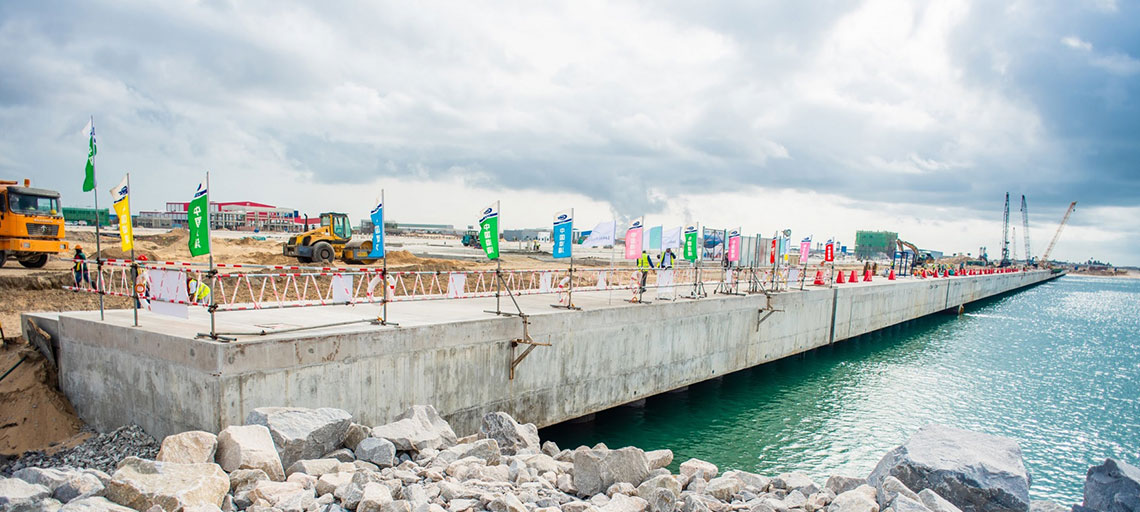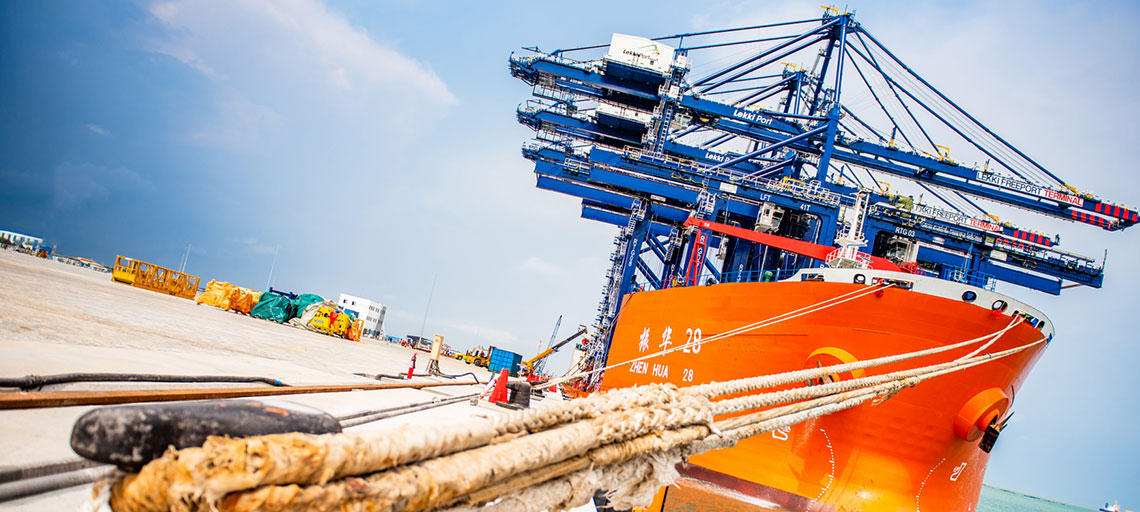Nigeria’s first deep sea port is one of the most advanced on the West African coast and is transforming the region’s commercial operations.
Just 60km east of the bustling city of Lagos, on a 90-hectare section of coastal land sits the Lekki Deep Sea Port. A $1.5bn megaproject, the port operates at the centre of the Lagos Free Trade Zone (LFZ) and serves as a major commercial gateway.
Here in the LFZ, companies can trade their goods inside Nigeria’s customs territory without an import or export license and without incurring state or federal taxes. These benefits, combined with the zone’s world class infrastructure and integration with the port, are driving a boom in Africa’s largest economy.
Slated to begin full operations in 2023, the Lekki Deep Sea Port will create around 170,000 direct and indirect jobs and will add an aggregated $361bn to the Nigerian economy.

The port's 1,600m-long quay wall is supported by a steel-built combi system that maximises safety and flexibility
Building a world-class port
Lekki’s multipurpose facilities will have container, liquid and dry bulk terminals able to serve container ships of up to 8,000 twenty-foot equivalent units (TEUs). Vessels of this size can be accommodated due to the port’s 9km-long and 19m-deep navigation channel, supported by a 600m-wide turning basin to allow vessels to arrive at or leave the port.
The container terminal has three berths, including a 1,200m-long and 16m-deep quay wall, 13 quay cranes, and a storage yard with a capacity of 15,000 ground slots. This terminal has capacity for 2.7 million TEUs a year, transforming capacity for trade in Nigeria.
The 1,200m-long quay wall that forms the core of the facility is support by a sturdy spine of around 1,600 steel piles. Constructing combined wall sections that use a primary stiff steel tube piling, support by a secondary flexible section, allows for deeper walls that can service larger vessels.

The finished port will be able to handle 2.7 million TEUs per year
The use of combi walls supported by steel piles improves safety, providing a high stiffness and high bending moment capacity, while also speeding up the construction process and lowering costs when compared with traditional concrete caissons.
Once unloaded from vessels, bulk cargo is shipped to the storage areas on 25m-long covered conveyor systems, giving the terminal a four million metric tonne capacity.
The port can handle a range of products, including grains, raw sugar, and fertilisers, as well as liquid products, including petrol and diesel that are conveyed using steel pipelines along the breakwater.
The first of its kind in Nigeria, the Lekki Deep Sea Port represents a new dawn for infrastructure and commerce in West Africa and it is hoped it will pave the way for similarly ambitious construction projects.
Images: Lekki Port LFTZ Enterprise Limited